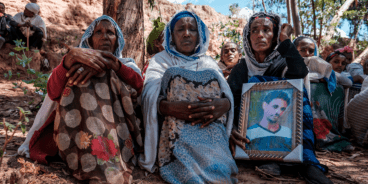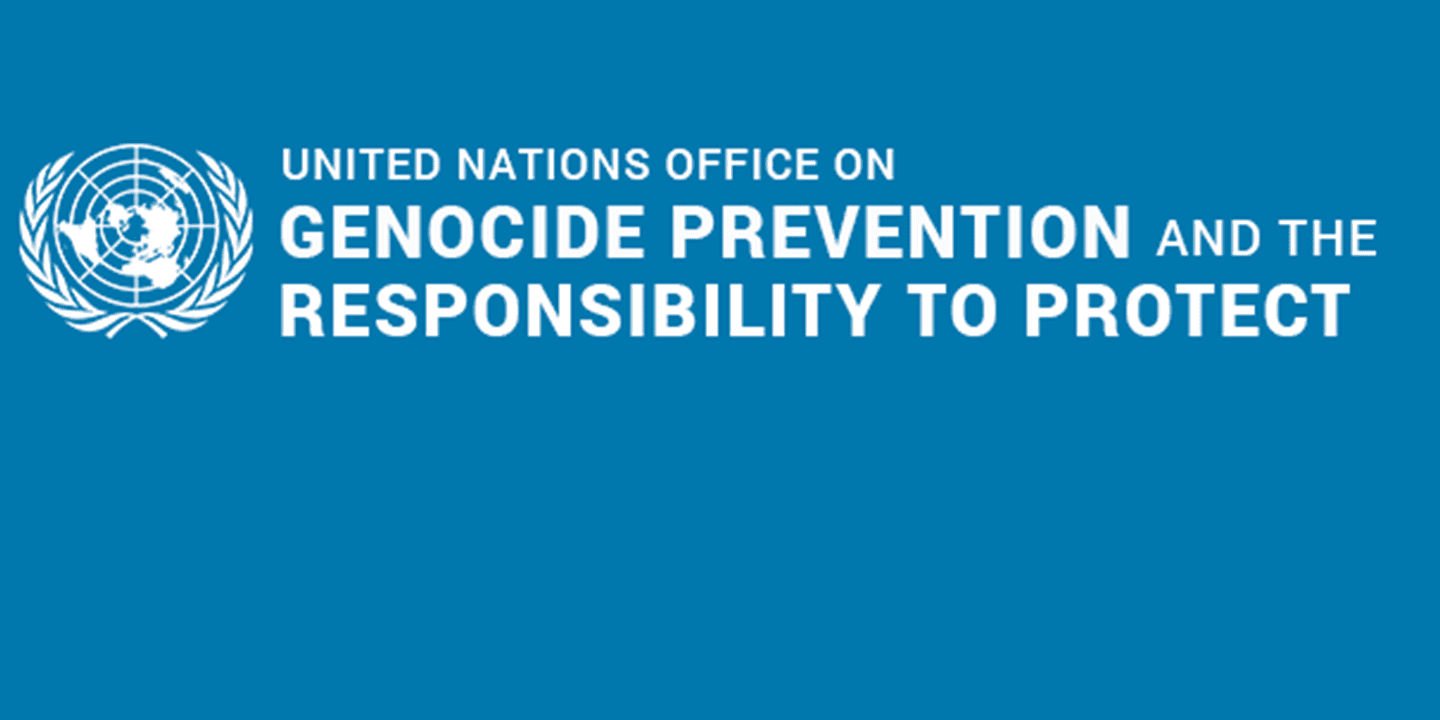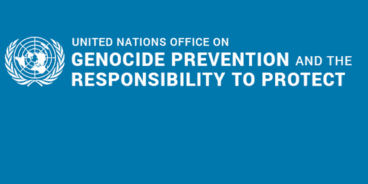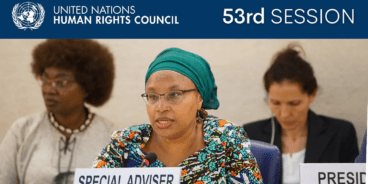

Statement by the UN Special Adviser on the Prevention of Genocide on the situation in Ethiopia, November 2021
The Special Adviser of the Secretary-General on the Prevention of Genocide, Alice Wairimu Nderitu, is gravely concerned at the deterioration of the situation of Ethiopia, where escalation of violence, increased incidence of ethnically and religiously motivated hate speech, displacement of populations and destruction of property display serious indicators of risk of commission of atrocity crimes.
The Special Adviser echoes calls for de-escalation and dialogue to address the current crises, including by the Secretary-General and the Chairperson of the African Union. “It is essential that all parties take serious and urgent steps to de-escalate the situation and take active measures to mitigate the risk of commission of wide-spread and systematic violence, including along ethnic lines. This risk is real and must be addressed as a matter of urgency.” The Special Adviser notes that the decentralized nature of the country and the strengthening of ethnic-based allegiances, especially at the community level, enhances the possibility of such violence.
In the view of the Special Adviser, “further deterioration can have very serious consequences not only for the future of the country but for the overall region, including cross-border conflicts. It is therefore vital that regional actors take any possible initiative to strengthen dialogue and put an end to the armed conflict, including by supporting ongoing regional mediation efforts, and that the international community remains engaged in supporting such efforts and in contributing to open further options for peace. This includes the African Union’s Peace and Security Council, and the Intergovernmental Authority on Development (IGAD) both of which have a key role to play.” The Special Adviser believes that only through genuine and inclusive dialogue can Ethiopians address the root causes of their divergences and preserve their country’s unity and stability. This includes at the community level, where strategies to reduce conflict, division, distrust and hostility are especially paramount. “Unfortunately, dynamics conducive to legitimizing violence for political and ethnic nationalism purposes precede the current conflict, and the current conflict is likely to build upon this negative legacy. This cycle needs to be broken for sustainable peace to emerge. Through dialogue, Ethiopians can find solutions based on shared needs and interests and build a common sense of belonging through constant interaction and shared experiences. In short, they can see once more that they have more commonalities than differences, as their kinship ties across ethnicities go back centuries.”
The Special Adviser reiterates concerns expressed in her 5 February and 30 July statements on the situation in this country, and notes that current developments occur in a context of history of inter-ethnic conflict; ongoing human rights violations and absence of accountability; increased politicization of identity and past grievances; increased inflammatory rhetoric, propaganda campaigns or hate speech; sexual and gender-based violence and creation of, or increased support to, militia or paramilitary groups. The Special Adviser also notes that the country continues witnessing inter-group tensions and patterns of discrimination against specific groups, including ethnic profiling, incitement to violence and allegations of systematic attacks against specific populations. “These all constitute risk factors for atrocity crimes. Given their potential impact in triggering large-scale violence, allegations of hate speech by ethnic and religious leaders are particularly concerning.”
Special Adviser Nderitu also acknowledges the serious violations by all parties between November 2020 and August 2021 documented in the Joint Investigation into Alleged Violations of International Human Rights, Humanitarian and Refugee Law Committed by all Parties, issued by the Ethiopian Human Rights Commission and the Office of the United Nations High Commissioner for Human Rights this week. The Special Adviser joins the High Commissioner for Human Rights in urging national and international national actors to take steps for accountability for the serious violations documented in the period covered by report, as well as for the alleged violations committed since. In this direction, she welcomes the establishment of a high level inter-ministerial task force in response to the Joint Investigation and encourages this body to take urgent steps. “Accountability constitutes an essential prerequisite for prevention and must be prioritized as such.”
The Special Adviser also calls on all non-State actors in a position of leverage to do their utmost to contribute to mitigating risks of further deterioration. “This includes tech and social media companies, to which I am grateful for their efforts to limit the reach of inflammatory statements by political actors,” said the Special Adviser, who also called on religious leaders and actors “to contribute to counter the seeds of division and to bring communities together.”

